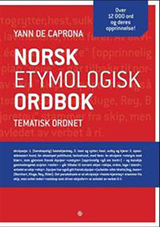'The Lamb' (1789)
William Blake
Little Lamb who made thee
Dost thou know who made thee
Gave thee life & bid thee feed.
By the stream & o'er the mead;
Gave thee clothing of delight,
Softest clothing wooly bright;
Gave thee such a tender voice,
Making all the vales rejoice!
Little Lamb who made thee
Dost thou know who made thee
Little Lamb I'll tell thee,
Little Lamb I'll tell thee!
He is called by thy name,
For he calls himself a Lamb:
He is meek & he is mild,
He became a little child:
I a child & thou a lamb,
We are called by his name.
Little Lamb God bless thee.
Little Lamb God bless thee.
William Blake
| Thee | The objective case of 'Thou' (you) |
| Dost | Second person singular, present indicative of 'Do' (Arch.) |
| Thou | Nominative second person singular of the personal pronoun (Arch.) |
| Mead | 'Meadow' (poet.) |
| Vales | 'Valley' (poet.) |
| Rejoice | To be full of joy |
| Thy | Possessive pronominal - 'Your' (Arch.) |
| 'He' | Jesus Christ |
| 1789 | The beginning of the French Revolution |
Comments:
'Showing the Two Contrary States of the Human Soul'
(From Songs of Innocence and of Experience)
The poems 'The Lamb' and 'The Tyger' are taken from William Blake's 'Songs of Innocence' and 'Songs of Experience'.
We have chosen to include the two contrasting poems in our study of 'The Wall' by Pink Floyd, as it might be possible to find some parallells, and perhaps, even elaborate the thematic approach.
The poems represent two opposite extremes, the ultimate good and the contrasting evil aspects of our existence, or, simply the conflicting aspects of every man's nature. Concerning the latter, 'The Wall' emphasizes society's, etc. negative influence by presenting war, the school system, commercialism, mother dominance, etc. etc. as the 'bricks in the wall' building up around us all destroying our originality, creativity and individuality.
Symbolically, Blake's two poems fit in very well. In 'The Wall' innocence is symbolized by the white dowe and the young child ('The Lamb'). The contrast between 'innocence' and 'experience' is found all through the piece of art. An example might be 'The Thin Ice'.
There are a lot of examples of negative aspects of 'modern life' (experience) to be found, however, the one most directly linked to Blake's 'The Tyger', is the German WWII Tiger tank we meet in the song 'When the Tigers Broke Free' (only in the film).
We should also be aware of the fact that 'The Lamb' was written some time during the first year of the French Revolution. Blake sympathized with the revolutionaries, and must have had very positive expectations (read 'In the Flesh'!)
Unfortunately, it all ended up in blood and terror, which might be the reason why he wrote 'The Tyger' five years later.
I don't want to say much more.
Read the poems (and perhaps some other poems by Blake - What about parts of 'The Marriage of Heaven and Hell'?), use your imagination, both your primary and secondary if possible, find parallells between the poems and 'The Wall', and put your interpretations into written words.
My Norwegian students could very well find parallells in both ancient and modern literature. What about 'Olaf og Kari' (Olaf and Kari)? Is it just a piece of saga poetry describing a mother dominating and influencing her son into murdering his own wife? - or is it a poem about everybody's (Olaf's) struggle between good and evil, with an underlying message and demand to you and me to fight the negative forces in our minds?
Both the motif and the story fits very well into the frames of both William Blake's poetry and Pink Floyd's 'The Wall'.
I might list many examples of other writers being occupied with the same fundamental questions.
What about you in Trinidad&Tobago, in Germany, Japan, etc. etc. Don't you find thematic similarities in your own literature?
|
oppdatert 04.03.2018
Page visited
7541 times
Totalt:
|


